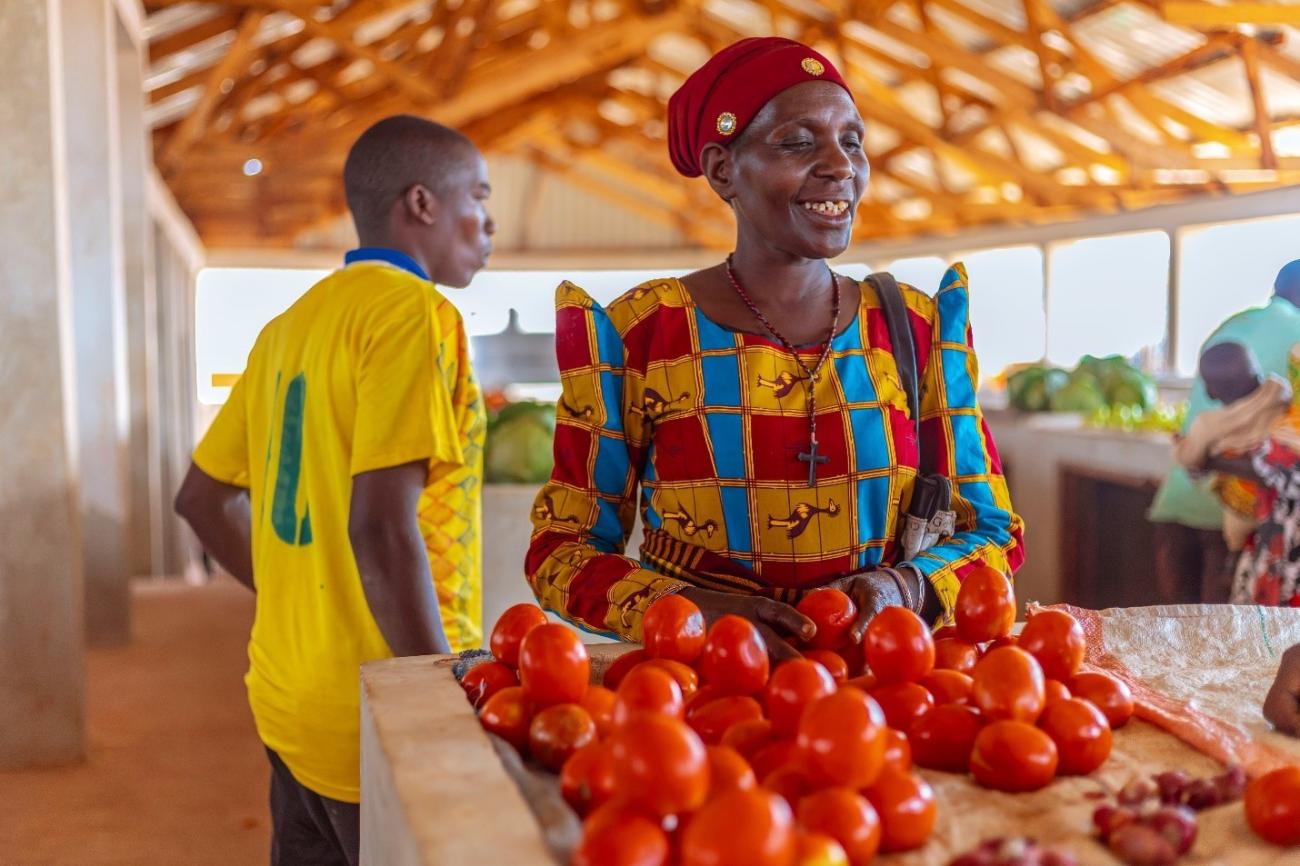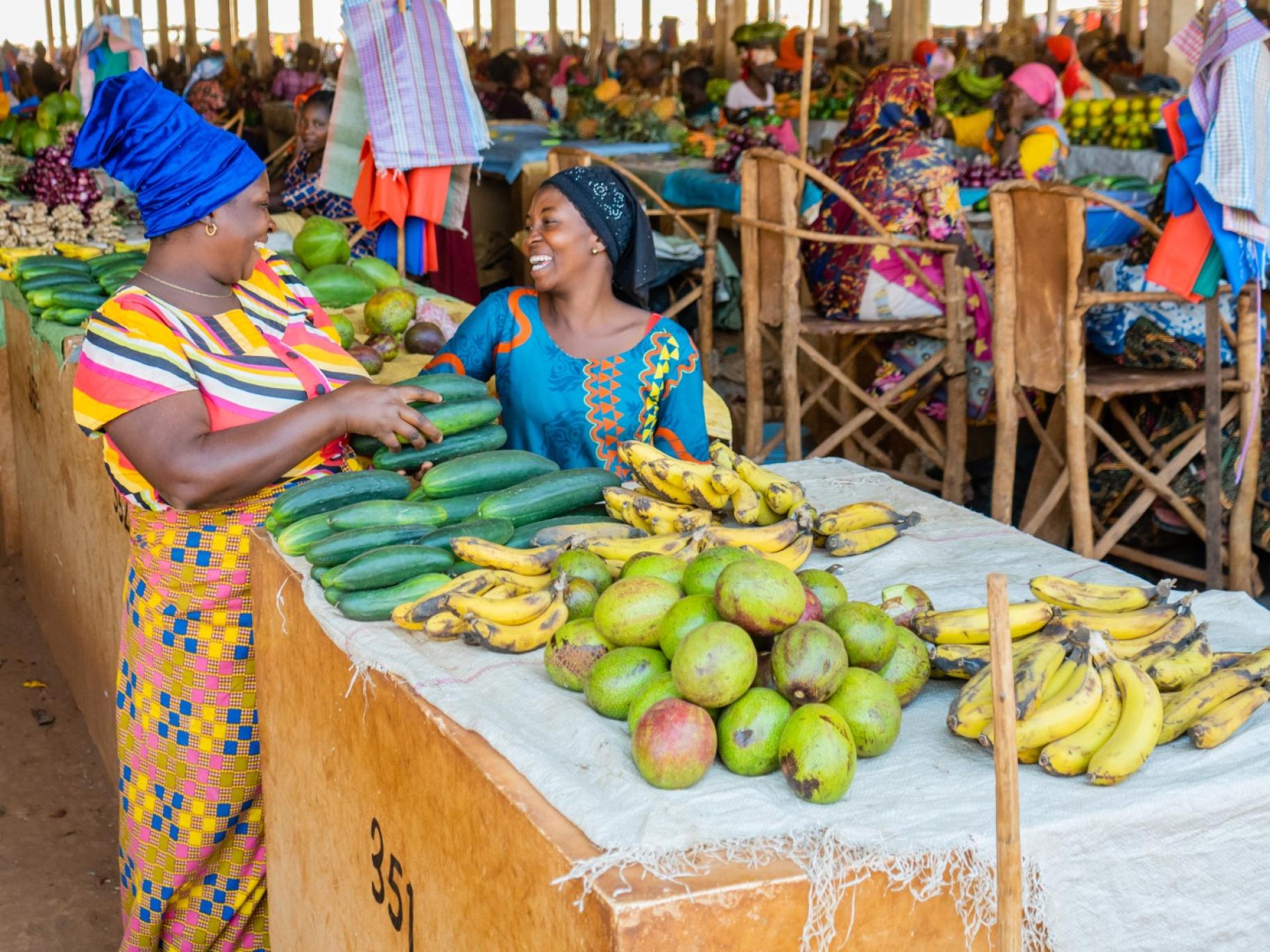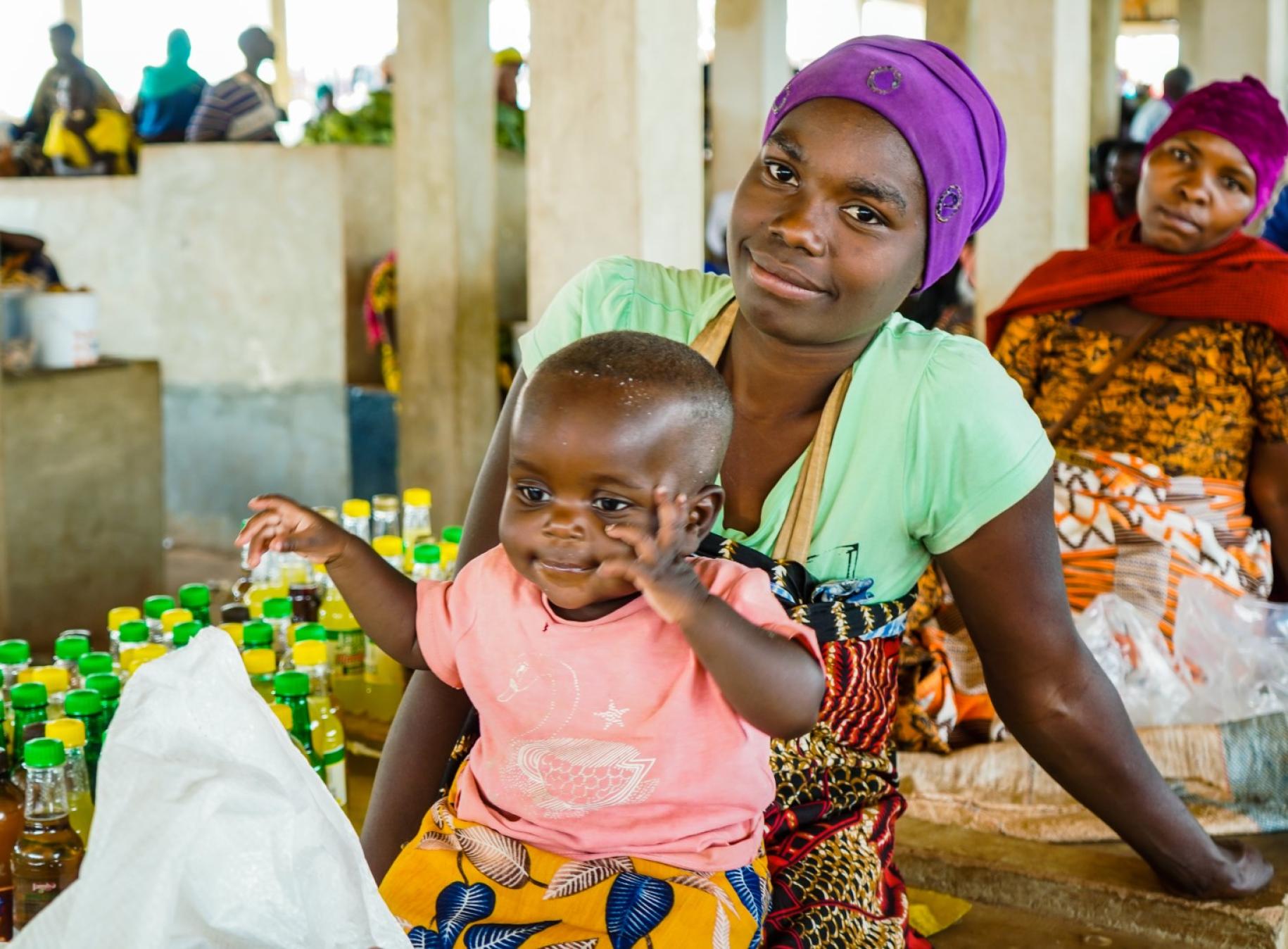Bridging Borders, Building Futures in Tanzania: Muhange Market's Remarkable Revamp

For decades, Muhange Cross-Border Market, situated in the United Republic of Tanzania’s Kigoma Region, bordering Burundi, has been a hub for traders spanning a catchment area of 200km. Although the market offered a wide array of products and services, it was in desperate need of rejuvenation.
Justina Amato, a mother of 11 and one of the market traders, vividly recalls the harsh conditions of the old market. "There were no sheds to protect us from heavy rains. It was unhygienic and lacked essential facilities like storage, toilets, and water supply. This not only led to the spread of diseases like cholera but also subjected women, who often traded with their infants, to abuse," she said.
Recognizing the need to significantly update and modernize this commercial hub, the UN in Tanzania launched a joint programme which gave birth to a new market structure, already benefitting around 3,000 traders, the majority of whom are women. The joint programme, which involves 17 UN agencies in Tanzania, complements humanitarian efforts by boosting economic development in the region, ensuring human security and providing support to some of the 250,000 refugees, migrants and host communities currently residing in the Kigoma area.

Currently in its second phase, the joint programme was orchestrated by the UN Resident Coordinator's Office (UNRCO) in Tanzania, which brought together various UN agencies and leveraged their strengths and expertise into specific aspects of the programme.
As part of this this collaborative effort, the Data Management Officer in the UNRCO played a key role in establishing a robust monitoring and evaluation framework to ensure a transparent and results-based approach to from planning to implementation.
Fostering strong governmental collaboration at both local and national levels has been another key factor to the programme’s success. From its very inception, the UNRCO Economist organized dialogues with government counterparts, advocating the wide-ranging benefits of the new market structure and garnering support and a sense of shared ownership from local partners. These dialogues were crucial to ensuring the programme was closely aligned with Kigoma’s broader development priorities and helped to ensure its long-term sustainability.
On the question of financing, the Partnerships Officer engaged with development partners at a national, regional and global level to help secure reliable funding for the joint programme; another crucial factor to its long-term sustainability. The most recent contribution has come through the Tanzania SDG Accelerator Fund which was jointly established by the UN and the Government earlier this year and is overseen by the UNRCO. This fund ensures impartial and systematic allocation of resources to UN agencies responsible for reconstructing the market implementing other areas of the joint programme.
Thanks to this team effort, the market has brought many benefits to communities in Kigoma. Reflecting on these improvements, Justina explained, “Our products used to rot as most of them are perishable. This market is transformative for us as it will help us store our products in a well-organized manner, reducing the burden of carrying our goods every day.”
Since its launch, the joint programme has impacted the lives of over 400,000 people in the region, almost 70% of whom are women. Through targeted initiatives on women’s economic empowerment, agriculture, Water, Sanitation and Hygiene (WASH) the joint programme has boosted Kigoma's standing across various socio-economic indicators, including reduced post-harvest losses, a decline in malaria prevalence among children, and increases in agricultural yields.

Beyond providing new economic opportunities, the revamped market has also helped increase employment and restore peace and security to the Kigoma region, as the District Government Trade Officer, Ms. Imelda Hokororo explains: "Prior to the project, many cases of banditry, theft, and loss of life were reported as people did business locally without a designated centre. With the centre, peace is abundant, and traders are assured of their security," she concluded.
The Resident Coordinator in Tanzania, Zlatan Milisic, who co-chairs the programme’s highest decision-making body together with representatives from the Government and Ambassadors, explains how the market has helped address some of the regions’ key development challenges.
“Muhange Market is one of two cross-border markets we have constructed in the region and their proximity to the Burundian border provides a unique opportunity for traders to engage in cross-border commerce and giving Kigoma's residents enhanced access to the Burundian market,” noted Mr. Milisic.
“Additionally, we have established aggregation storage centres adjacent to these markets guaranteeing farmers from villages across the region a platform to store and sell their produce at fair market values. These warehouses also have infrastructure for quality assurance of the products and, in fact, WFP are even now purchasing food for refugee operations from the centres,” he added.
“Such infrastructure advances don't only signify a step towards improved trade conditions, but they're pivotal in empowering countless women traders and smallholder farmers.”
As these markets thrive, ripple effects are being felt by families and communities across Kigoma region, which, as the Resident Coordinator emphasized, is helping pave the way for long-term, sustainable development in Tanzania.
This story was adapted from a version originally published by UN Tanzania. To learn more about the work of the UN in Tanzania visit Tanzania.un.org













